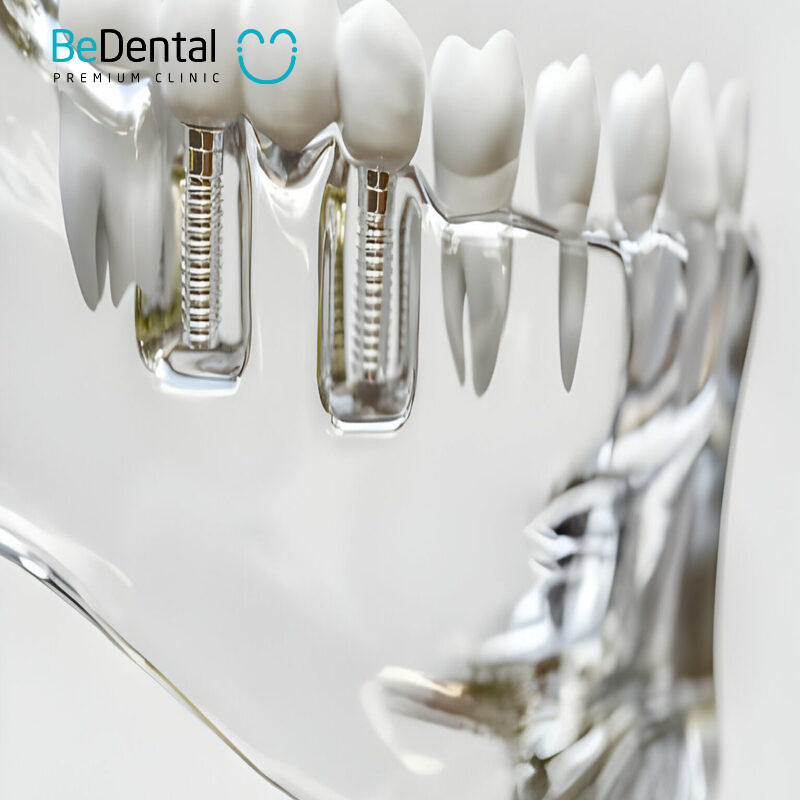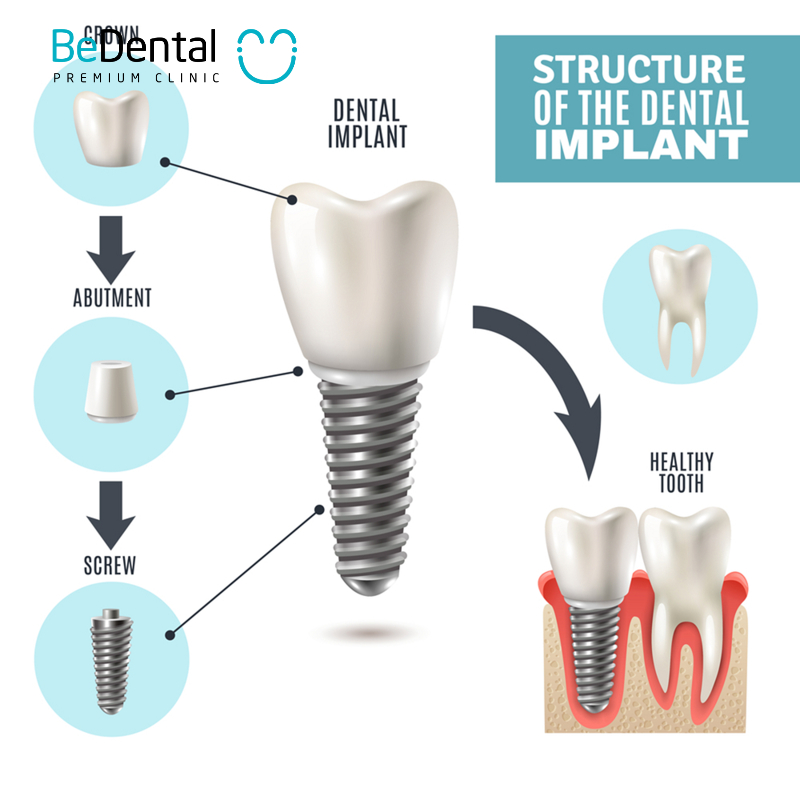5+ purposes of dental implant near me: Dental implants are becoming one of the most popular solutions for replacing missing teeth due to their durability, natural feel, and long-term benefits. Besides understanding the implant procedure, it’s essential to know why choosing a local dental implant provider can be beneficial. Let’s explore the top reasons why choose dental implants near me?
Why Choose Dental Implant Near Me?
If you’re considering tooth replacement, dental implants are one of the best long-term solutions. Unlike dentures or bridges, implants offer a natural feel, strong durability, and excellent oral health benefits. Choosing a local dental implant provider ensures you get the best care with convenient access to consultations, procedures, and follow-ups.

Benefits Over Other Tooth Replacement Methods
- Durability: Implants have a long lifespan, typically ranging from 10 to 15 years or longer with proper care, far surpassing bridges or removable dentures.
- Improved Chewing Function: Implants restore natural chewing ability, allowing patients to enjoy food without worrying about denture issues.
- High Aesthetic Value: The crowns placed on implants can be designed to closely resemble natural teeth, creating a harmonious and natural smile.
- Jawbone Preservation: The implant process stimulates jawbone, preventing the bone loss commonly experienced after tooth loss.
- No Need to Grind Adjacent Teeth: Unlike bridges, dental implants do not require grinding down neighboring teeth, preserving natural tooth structure.
Health Requirements Before Implant Surgery
The condition of the jawbone and oral health is crucial in determining the success of the tooth implant surgery in Vietnam. The jawbone must be sufficiently thick and healthy to support the implant post. If there has been bone resorption due to long-term tooth loss or other dental issues, additional procedures like bone grafting may be necessary before implantation. Furthermore, the health of remaining teeth and gum tissue also influences the implant’s feasibility and recovery process.
Medical Conditions Affecting Implant Surgery
Certain medical conditions can impact the implant dental procedure in Hanoi and HCM, including:
- Diabetes (Diabetes): Diabetic patients may face healing difficulties due to blood sugar fluctuations. Poorly controlled diabetes can increase the risk of infection and implant failure.
- Cardiovascular Issues: Conditions such as hypertension or heart disease may elevate the risk of complications during surgery. Proper management of cardiovascular health is essential before proceeding with the implant.
- Osteoporosis: This condition reduces bone density, affecting the implant’s integration with the jawbone. Such patients may require further evaluation and treatment to enhance bone condition before the procedure.
Role of Diagnosis and General Health Checkups
Diagnosis and general health evaluations play a vital role in determining the likelihood of successful dental implant surgery. During consultations, dentists can assess overall health, including underlying conditions, severity of oral issues, and jawbone condition. Through X-rays and necessary tests, dentists can formulate an appropriate treatment plan and advise patients on steps to optimize oral health before the procedure. This approach not only increases success rates but also minimizes the risk of complications during and after surgery.

The Dental Implant Procedure
The dental implant procedure (teeth implant procedure in Vietnam) consists of four stages: consultation, implantation, healing, and crown placement.
Initial Consultation and Examination- What you need to know before getting dental implants
The implant process begins with an initial consultation where the dentist conducts a comprehensive examination of oral health to evaluate the condition of the jawbone, remaining teeth, and gums. The dentist will inquire about medical history and overall health to determine if additional tests are needed. After obtaining results, the dentist will explain the implant procedure, including its benefits, potential risks, and necessary steps to ensure a successful outcome.
Implant Placement into the Jawbone- What you need to know before getting dental implants
Once all checks and consultations are complete, the patient will be taken to the surgical room for implant placement. In this stage, the dentist will numb the area to prevent pain. A small incision will be made in the gum tissue, allowing the implant post to be placed into the jawbone through a precise and gentle process. This step requires the dentist’s skill and experience to ensure the implant is positioned correctly.
Healing Time and Bone Integration- What you need to know before getting dental implants
After the implant is placed, the patient will enter the healing phase, where the jawbone begins to grow and attach to the implant post in a process called osseointegration. Healing can take several weeks to months, depending on the individual’s jawbone condition. During this period, patients must adhere to oral care guidelines and schedule regular check-ups to monitor recovery.
Crown Placement and Finalization- What you need to know before getting dental implants
Once healing is complete and the implant is securely integrated into the jawbone, the dentist will attach the crown to the implant post. This process involves taking impressions to design a crown that matches the shape and color of natural teeth. Once the crown is fabricated, the dentist will fit and adjust it for comfort. Finally, patients will receive care instructions to maintain a healthy and radiant smile.
Potential Risks and Complications and How to Prevent Them
Despite the high success rate of implant surgery, up to 98%, there are still risks and complications that may arise. It’s essential for patients to be informed and prepared to prevent potential undesirable outcomes.
- Infection, Nerve Damage, or Prolonged Bleeding:
Infection is one of the complications that can occur after implant surgery, often indicated by pain, swelling, or pus. Additionally, nerve damage may happen during surgery, resulting in numbness or pain in the lips, tongue, or cheeks. Prolonged bleeding post-surgery is another concern; if not addressed promptly, it could lead to anemia and require medical intervention.

- Risk of Implant Not Integrating with Bone:
A significant risk in dental implants is the possibility that the implant post fails to integrate successfully with the jawbone. If this integration does not occur, the implant may become loose and unstable, resulting in procedure failure. Causes may include insufficient jawbone health, improper surgical technique, or infection during recovery. External factors such as smoking or non-compliance with post-operative care can also increase this risk.
Prevention and Management of Complications
To minimize risks and complications, diligent post-operative care and follow-up are crucial. Patients should adhere to oral care guidelines, including keeping the implant area clean and taking antibiotics if prescribed. Regular follow-up appointments help monitor the implant’s status and detect any unusual signs early.
If signs of infection or prolonged numbness appear, patients should promptly contact their dentist for evaluation and timely intervention. In cases where the implant does not integrate with the bone, it may need to be removed, followed by other treatments like bone grafting before attempting to re-implant. This approach helps protect oral health and enhances the likelihood of successful implant surgery.
Why is BeDental a Trusted Name for Implants in Vietnam?
BeDental is a trusted name for dental implants in Vietnam due to its skilled specialists, use of high-quality materials, and modern technology. The clinic offers personalized implant solutions with a focus on long-term success and patient comfort, making it a top choice for reliable dental care.
For those seeking further consultation regarding dental examination services, please visit BeDental’s locations in Hanoi or Ho Chi Minh City. You can also reach us at our hotline: (+84) 934.61.9090 / (+84) 899.555.636 or through our Facebook page, BeDental, for prompt and accurate assistance.
Tư vấn chuyên môn bài viết:
BÁC SĨ DƯƠNG THỊ THÙY NGA
BEDENTAL - TOP STANDARD DENTISTRY SYSTEM
In HANOI
Address 1: 7B Thi Sach St, Ngo Thi Nham, Hai Ba Trung Dist, Ha Noi. - 0934.61.9090
Address 2: No 129 Hoang Ngan, Yen Hoa, Cau Giay Dist, Ha Noi. - 0934.61.9090
In HO CHI MINH
Address 1: 53 -55 -57 Pho Duc Chinh St, Nguyen Thai Binh, Dist. 1, Ho Chi Minh. - 0766.00.8080
Working: 9am - 8pm everyday
Website: https://bedental.vn/en/





